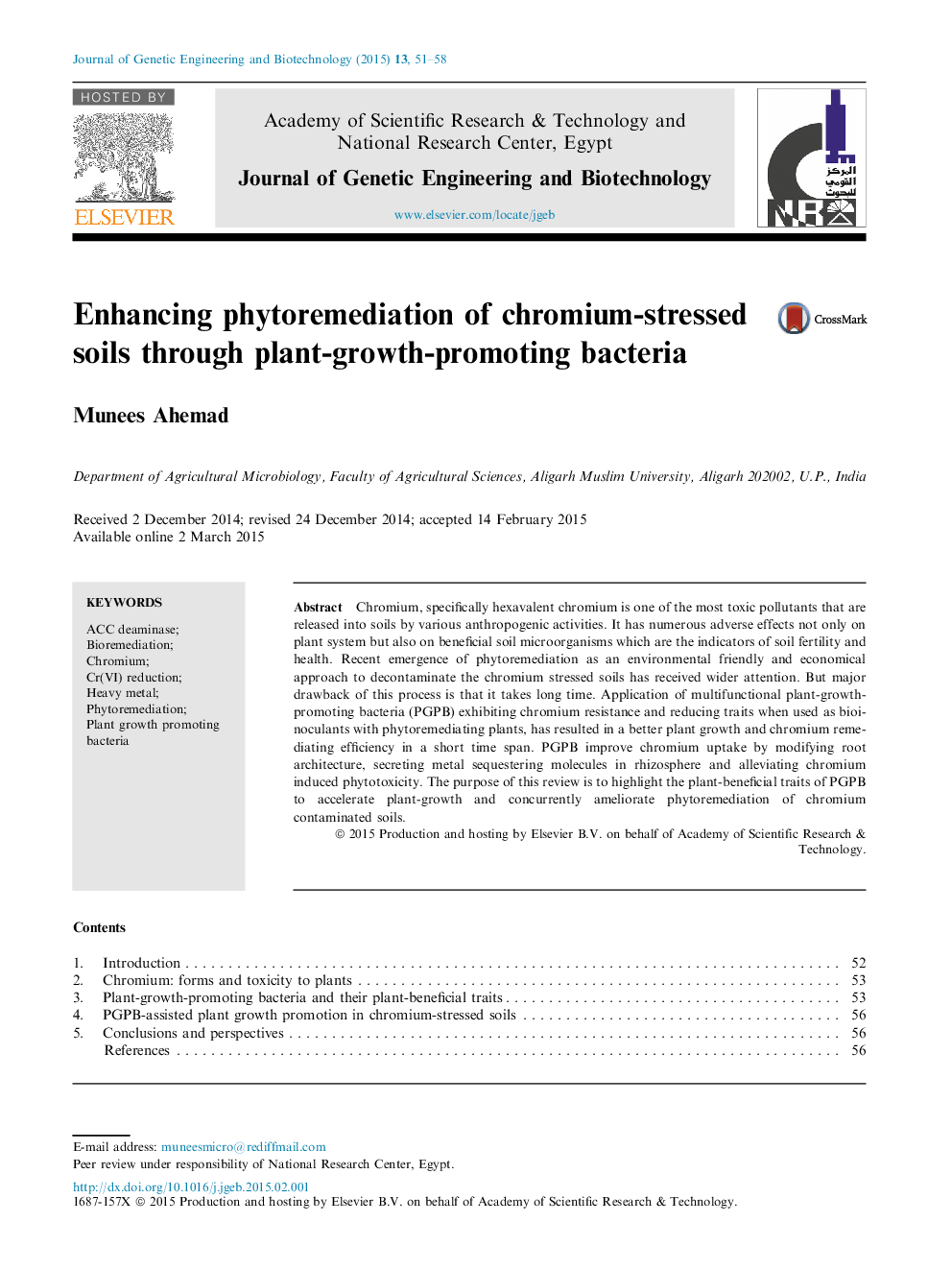| Article ID | Journal | Published Year | Pages | File Type |
|---|---|---|---|---|
| 2087907 | Journal of Genetic Engineering and Biotechnology | 2015 | 8 Pages |
Chromium, specifically hexavalent chromium is one of the most toxic pollutants that are released into soils by various anthropogenic activities. It has numerous adverse effects not only on plant system but also on beneficial soil microorganisms which are the indicators of soil fertility and health. Recent emergence of phytoremediation as an environmental friendly and economical approach to decontaminate the chromium stressed soils has received wider attention. But major drawback of this process is that it takes long time. Application of multifunctional plant-growth-promoting bacteria (PGPB) exhibiting chromium resistance and reducing traits when used as bioinoculants with phytoremediating plants, has resulted in a better plant growth and chromium remediating efficiency in a short time span. PGPB improve chromium uptake by modifying root architecture, secreting metal sequestering molecules in rhizosphere and alleviating chromium induced phytotoxicity. The purpose of this review is to highlight the plant-beneficial traits of PGPB to accelerate plant-growth and concurrently ameliorate phytoremediation of chromium contaminated soils.
